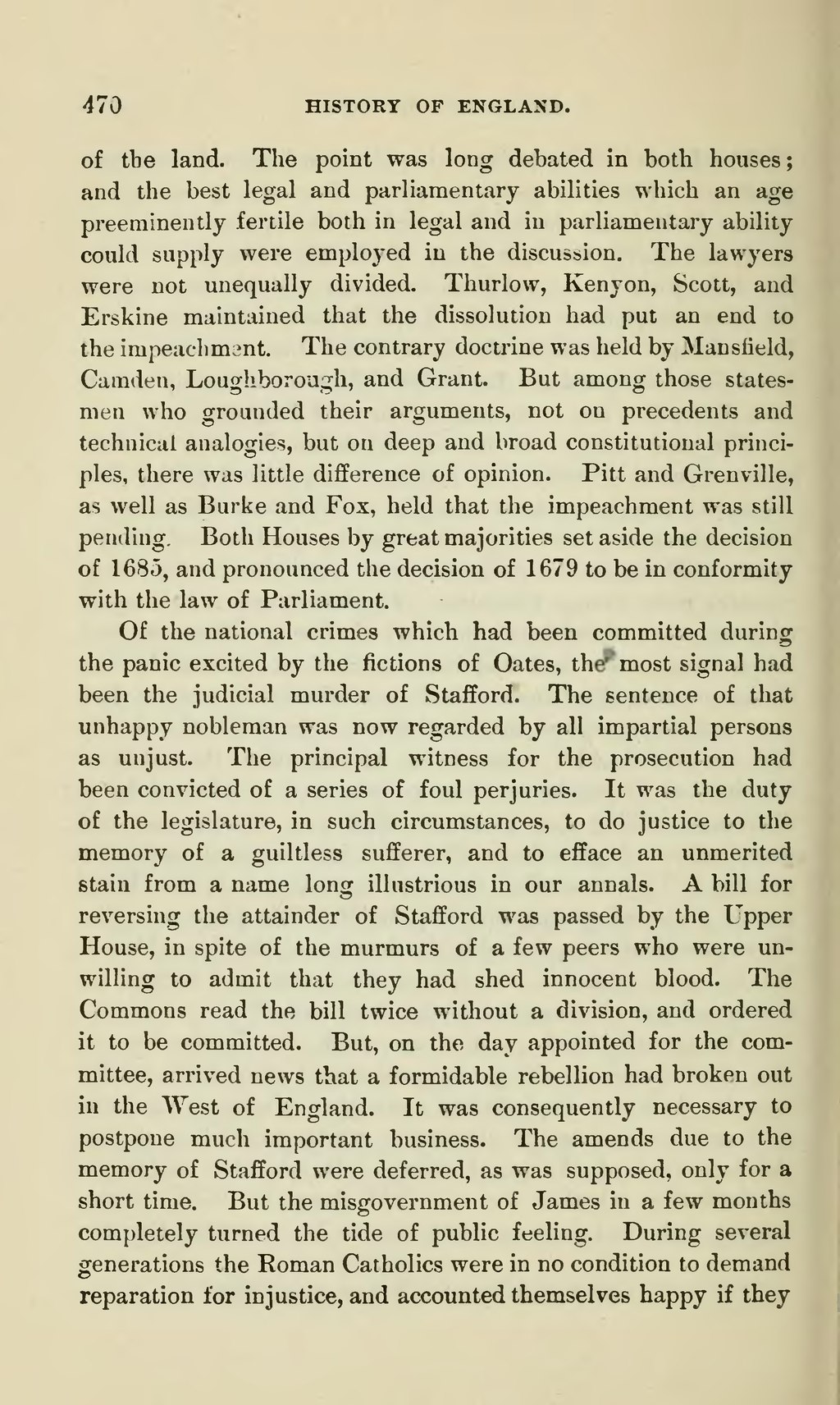of the land. The point was long debated in both houses; and the best legal and parliamentary abilities which an age preeminently fertile both in legal and in parliamentary ability could supply were employed in the discussion. The lawyers were not unequally divided. Thurlow, Kenyon, Scott, and Erskine maintained that the dissolution had put an end to the impeachment. The contrary doctrine was held by Mansfield, Camden, Loughborough, and Grant. But among those statesmen who grounded their arguments, not on precedents and technical analogies, but on deep and broad constitutional principles, there was little difference of opinion. Pitt and Grenville, as well as Burke and Fox, held that the impeachment was still pending. Both Houses by great majorities set aside the decision of 1685, and pronounced the decision of 1679 to be in conformity with the law of Parliament.
Of the national crimes which had been committed during the panic excited by the fictions of Oates, the most signal had been the judicial murder of Stafford. The sentence of that unhappy nobleman was now regarded by all impartial persons as unjust. The principal witness for the prosecution had been convicted of a series of foul perjuries. It was the duty of the legislature, in such circumstances, to do justice to the memory of a guiltless sufferer, and to efface an unmerited stain from a name long illustrious in our annals. A bill for reversing the attainder of Stafford was passed by the Upper House, in spite of the murmurs of a few peers who were unwilling to admit that they had shed innocent blood. The Commons read the bill twice without a division, and ordered it to be committed. But, on the day appointed for the committee, arrived news that a formidable rebellion had broken out in the West of England. It was consequently necessary to postpone much important business. The amends due to the memory of Stafford were deferred, as was supposed, only for a short time. But the misgovernment of James in a few months completely turned the tide of public feeling. During several generations the Roman Catholics were in no condition to demand reparation for injustice, and accounted themselves happy if they
